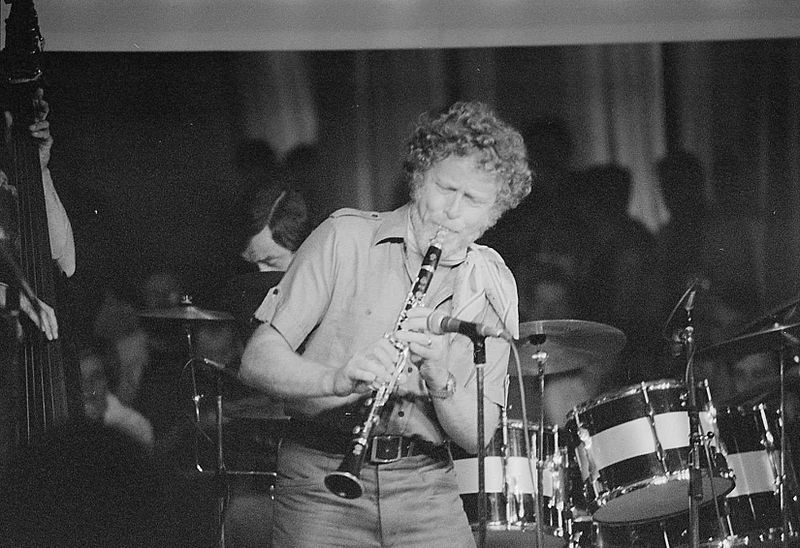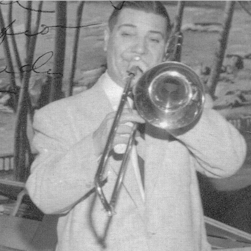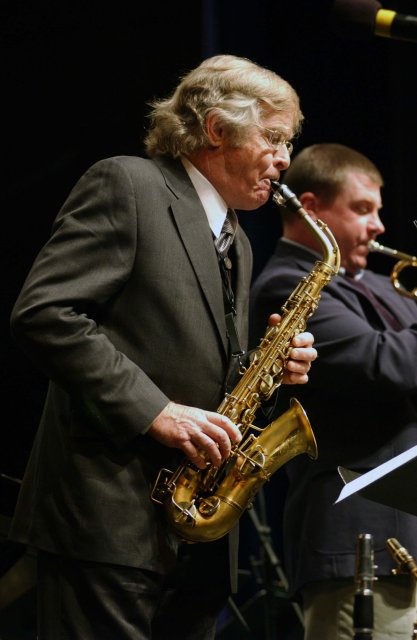
Bob Wilber 1970. Photo courtesy of the artist
Born in 1928 in New York City, Bob Wilber is internationally recognized as a jazz clarinetist and saxophonist, dedicated to classic styles. In high school, Wilber formed a jazz band, The Wildcats, with pianist Dick Wellstood and became a student of New Orleans clarinet and saxophone legend Sidney Bechet. Under Bechet’s tutelage, Wilber grew adept on the soprano saxophone as well as the clarinet, and in recordings with Bechet was clearly at home in a traditional jazz setting at an early age. Wilber’s avid desire to expand his knowledge and expertise led him to further studies under the influential cool jazz, bebop and Avant-garde pianist Lennie Tristano.
On our show this week, Bob Wilber is featured with The Jim Cullum Jazz Band in music from various stages of his career and on many of his own compositions, among them:
- "BG," an homage to clarinetist Benny Goodman
- "Bix," a theme from the 1994 film Bix: An Interpretation of a Legend for which Bob wrote the arrangements
- "Meet Me Tonight in Dreamland," a favorite from the Soprano Summit group with Kenny Davern
- "Reverie," a soaring Bob Wilber melody that is a favorite of the Jim Cullum Jazz Band in live performance

Jack Teagarden photo used my permission of Elsa Davern
From the late 1950s through the 60s, Bob Wilber played and recorded with a roster of iconic jazzmen Bobby Hackett, Benny Goodman, Sidney Bechet, Jack Teagarden and Eddie Condon. By the close of the 60s, he was an original member of the World’s Greatest Jazz Band, a traditional jazz ensemble co-led by bassist Bob Haggart and trumpeter Yank Lawson with luminaries like stride pianist Ralph Sutton and clarinetist Peanuts Hucko as sidemen.

Bob Wilber photo courtesy of the artist
In the early 70s, Bob Wilber teamed up with the distinguished east coast clarinetist Kenny Davern to form Soprano Summit, a band that brought them both to the attention of new audiences around the world. After the demise of Soprano Summit in 1979, Wilber formed the Bechet Legacy Band, recording extensively, often on his own label—Bodeswell.
Active in jazz education, Bob Wilber has been musical director of the Smithsonian Jazz Repertory Ensemble, and he has written music for film, most notably a re-creation of Ellington’s music for Francis Ford Coppola’s The Cotton Club (1984). Wilber continues to lead his Bechet Legacy band, making records including a fine set which capture the essence of the King Oliver Band. He also re-created a Benny Goodman band for anniversary performances of the famed 1938 Spirituals to Swing Carnegie Hall concert and published his autobiography, Music Was Not Enough. In the early 90s, Wilber reunited with Kenny Davern for concert appearances.
Now living in Chipping Campden, a small market town in the Cotswold district of Gloucestershire, England, Bob Wilber continues to create and play his exciting and tasteful explorations of classic jazz.
Photo credit for Home Page: Bob Wilber photo courtesy of the artist.
Text based on Riverwalk Jazz script by Margaret Moos Pick ©1992

